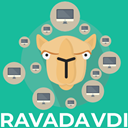Unlocking Your Options: The Best QVD Virtual Desktop Alternatives
QVD Virtual Desktop is a commendable open-source VDI solution, designed to provide a secure and accessible alternative to traditional desktop virtualization, particularly strong in Linux environments. It boasts high availability, self-provisioning, multi-platform client support, and a robust web administration panel, making it a powerful choice for on-site and cloud desktop services. However, even excellent software has alternatives that might better suit specific needs or offer different feature sets. Whether you're seeking a more specialized solution, a different licensing model, or simply exploring your options, understanding the top QVD Virtual Desktop alternative choices is crucial.
Top QVD Virtual Desktop Alternatives
When considering a QVD Virtual Desktop alternative, you'll find a diverse landscape of solutions, ranging from other open-source projects to commercial offerings with unique advantages. Here’s a look at some of the best alternatives that can help you achieve your virtual desktop infrastructure goals.

IsardVDI
IsardVDI is an excellent open-source and self-hosted QVD Virtual Desktop alternative, built upon KVM Linux virtualization and Docker. It provides a robust and flexible platform for deploying VDI solutions, making it ideal for those seeking a free, community-driven option with control over their infrastructure, specifically within a Linux environment.

UDS Enterprise
UDS Enterprise stands out as a high-performance, multiplatform connection broker for deploying and managing both Windows and Linux virtual desktops and applications. As an open-source solution, it offers features like application virtualization, remote desktop capabilities, and comprehensive virtualization, presenting a versatile and powerful QVD Virtual Desktop alternative for diverse operating system environments.

Vmware Horizon
VMware Horizon Application Manager is a commercial QVD Virtual Desktop alternative that simplifies IT by centralizing application management in the post-PC era. It allows IT to unify the management of SaaS, Web, and Windows applications, providing a comprehensive and enterprise-grade solution for Windows environments.

flexVDI
flexVDI is a commercial QVD Virtual Desktop alternative designed to provide employees with the freedom to work from anywhere while cutting IT costs. It securely delivers Windows, Linux, web, and SaaS applications, along with full virtual desktops, to any device. With virtualization features and multi-platform support (Mac, Windows, Linux, Android, iPhone, iPad, Self-Hosted), flexVDI offers extensive flexibility for various user needs.

RavadaVDI
RavadaVDI is a free and open-source VDI solution that acts as a VDI broker, allowing users to connect to a virtual desktop. As a FOSS project, it's easy to use and deploy, making it an excellent QVD Virtual Desktop alternative for those prioritizing open-source freedom and simplicity within a Linux environment.

Userful Multiplatform
Userful Multiplatform offers a freemium and browser-managed converged appliance for entry-level VDI, signage, and touch-screen endpoints. It supports virtualization and operates within a Linux environment, providing a versatile QVD Virtual Desktop alternative for various use cases beyond just standard VDI.

Oracle VDI
Oracle Virtual Desktop Infrastructure (Oracle VDI) is a commercial software solution that provides a complete system for managing, hosting, and providing access to virtualized desktop operating systems. As a strong QVD Virtual Desktop alternative, it operates on Linux and Solaris, offering a robust, enterprise-grade VDI solution for organizations invested in the Oracle ecosystem.

FOSS-Cloud
FOSS-Cloud (FOSS-Cloud software and hardware) provides an integrated and redundant server infrastructure for delivering virtualization and cloud services, whether Windows or Linux-based. As a free, open-source, and self-hosted QVD Virtual Desktop alternative, it offers robust virtualization capabilities for those seeking a comprehensive, customizable, and community-driven cloud and VDI platform, particularly strong in Linux environments.
Each of these alternatives offers unique strengths and features, from open-source flexibility to enterprise-grade support. By evaluating your specific needs, budget, and desired level of control, you can choose the QVD Virtual Desktop alternative that best aligns with your organization's goals.